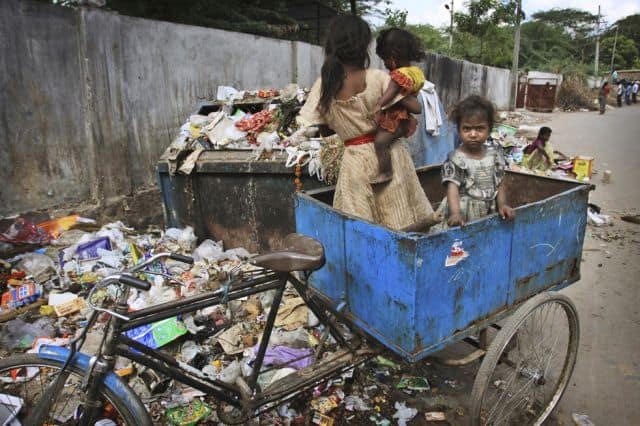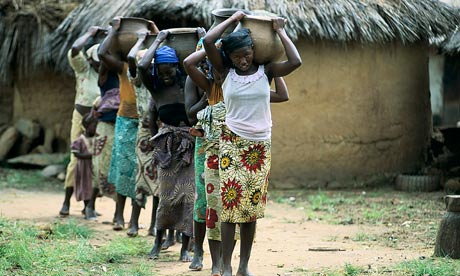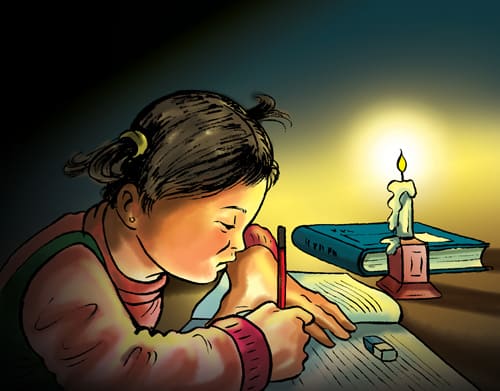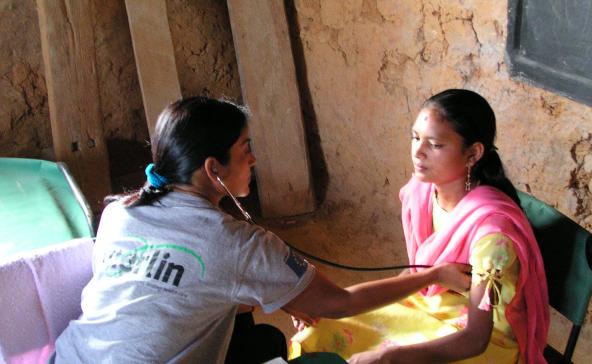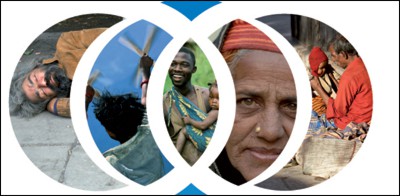Well, more than a quarter of the inhabitants of the so-called third-world countries still have nothing to live on. Almost one out of every five people, out of the 1.2 billion men, women and children, live below the poverty line, surviving on the equivalent of less than a dollar a day. Half the people in the world are trying or manage to stay below the poverty level of two dollars a day. Around 824 million people go hungry or have a very scarce food supply, and another 500 million suffer severe malnutrition. These facts are only the tip of the iceberg. If I continue mentioning each stat in this article, I will probably grow old and die by the time I finish or may even have a couple left for my descendants to type on.
What I am trying to say is, problems in our lives, every little thing we assume to be the end of the world is nothing, zero, just zip in comparison to what the people in developing countries or, so to say, the Third World Countries as our Scholars and Journalists like to refer to. Even though no one will ever be bothered, we know; we still have the top 10 most exciting and probably alien-sounding facts about Third World countries here.
10. Poverty
Poverty is one of the skeletal reasons third-world countries are called third-world countries. If people weren’t poor, they would live well above the poverty line. That is simple, but what exactly is poverty? You could be wondering. Per UN standards, poverty means living on $2.50 a whole day, and extreme poverty is living on $1.25 or less. Around 1 billion of these people are innocent little children and infants. According to the UN, approx. Twenty-two thousand children die each day in these countries due to poverty.
9. Drinking Water
Have you ever been in a situation where you were thirsty and didn’t have any water around you? At least not drinkable water; what would you have done? Probably run down to the nearest store, get a bottle of mineral water, and quench your ever-so-unbearable thirst. Well, imagine feeling thirsty and not having any water, not around you, not anywhere. No taps, department stores, pools, lakes, or even a river; just the thought of it suffocates you. More than a billion people do not have adequate access to clean drinking water, and an estimated 400 million of these are children again.
8. No Electricity Supply
A quarter or more of the entire human population lives without electricity in pitch-black darkness as the night falls, along with the eternal darkness that overshadows their fates. That is around 1.6 billion people who do not know something like electricity exists. They are technically still living in Stone Age, with no computers, no internet, no appliances, just nothing.
7. Agriculture
More than half the population of all the developing nations in the world depends on Agriculture or farming for survival and at least two meals a day. That is almost 75 percent of the world’s poorest people, approx. 1.4 billion women, children, and men. However, the even more intriguing fact is that 50 percent of hungry people are farming families. A lot of internationally acclaimed projects are carried out every year to train and empower these people from such countries to at least help them learn to live off Agriculture.
6. HIV/AIDS and Other Diseases
HIV is on the verge of becoming the greatest epidemic some third-world countries have ever seen. Around 40 million people are living with Aids. Sixty-five percent of them are women. According to research, about 90 percent of all children and 60 percent of all women affected by HIV live in sub-Saharan Africa. Regarding other diseases, more than 11 million children die each year from preventable health issues such as malaria, diarrhea, and pneumonia.
5. HealthCare
Women, children, and men that die every year just because of a lack of preventable health care services seem only to be increasing. More than 800 million people have no access to health care, and that’s just a rough calculation, there might be hundreds of thousands not even recorded. Health care isn’t readily available everywhere in the world, so most of the entire world’s population dies of silly preventable diseases like the common cold and diarrhea.
4. War
Most countries that fall in the third world category or those developing face heavy-duty corruption or are buried deep under the ashes of war. Civil wars, cold wars, religious wars, and so on are fought no matter how low or pitiful the country’s condition, you might be wondering how? Well, it just happens to be the policy of certain countries to help these third world countries at the time of war for arms and ammunition and medic and supplies for the army so that they could live through the war and pay an even huger amount of debt. Something inhumane, isn’t it? Countries like the US, China, and Russia have these ill traits of supporting the war.
3. Pollution
Let’s suppose one of the countries in the third world is barely hanging on to life, overcoming all the problems mentioned above and trying to get through this journey of life, but is bothered by the nuisance problem of pollution. Pollution, as we’ve been studying since 1st grade, is destroying our environment and our place of habitat. Still, nobody seems to be bothered enough. At least none of the industrialized countries with nuclear toxic power plants seem to be. Air, water, or earth pollution is threatening the lives of, not only people in the third world; but everyone on this planet.
2. Social and Cultural Exclusion
Again, a third-world country or not social exclusion is basically the state where people lose their self-confidence and bury themselves into deeper and deeper wretched poverty along with greater isolation. With no social and cultural framework, a country can go haywire due to the complete loss of morals and ethics from society. Free will, as great as a gift it is considered to be, will prove to be the worst nightmare for any third-world country. No wonder countries like Sierra Leone and Colombia are still in existence.
1. Hunger
More than 870 million people in the third world have no food to eat or a very precarious food supply, i.e., more than the US and the European Union combined. The entire undernourished population of the world lives in third-world countries, like Africa, Somalia, and many more, some even unheard of. Sixty percent of these hungry are women, and 50 percent of pregnant women in developing countries lack proper maternal care, resulting in over 300,000 maternal deaths annually from childbirth. A third of all childhood death in sub-Saharan Africa is caused by hunger-related diseases, around 2.6 million deaths per year, one child every five seconds.
Final Conclusion:
It is astonishing how things go around on this small Earth of ours. On the one hand, a small handful of people and their families get the resources, facilities, and goods this world has to offer. In contrast, more than half of the world’s population is dying because of their fate’s brutality on their lives and the other three-quarters are barely managing to keep it up. Dying every second of the day, not living life the way it was meant to be lived, i.e., abundantly; only in their desperate hopes to create a secure and prosperous life for their little ones. Being aware of all this and still reading about how 12 percent of the world’s population uses 85 percent of all the water and none of the 12 percent lies in the developing nations. How less than $40 billion is only required to offer primary education, clean water, sanitation, reproductive health care for women, and essential health and nutrition to every person in every single developing country. That frustrates us to the core, maybe for a little while, but it indeed boils our blood up. However, it doesn’t mean we will ever be able to do anything about it, will we?
Nikhil is musician by choice, writer by profession. Currently, studying Bachelors in Hospitality.


